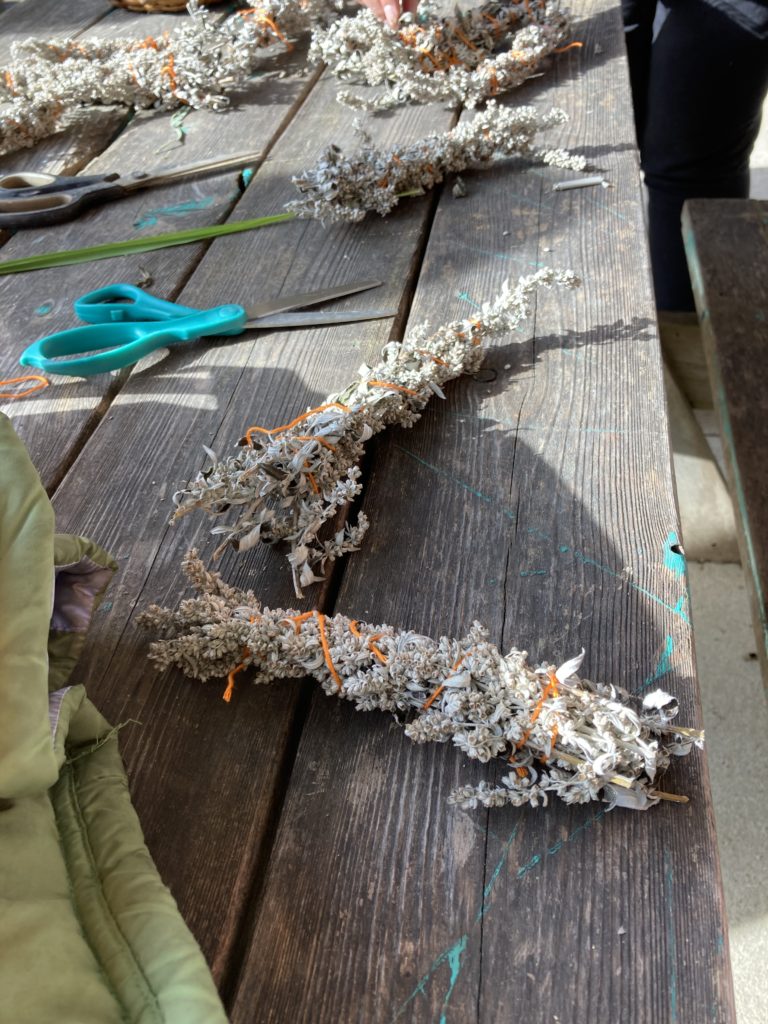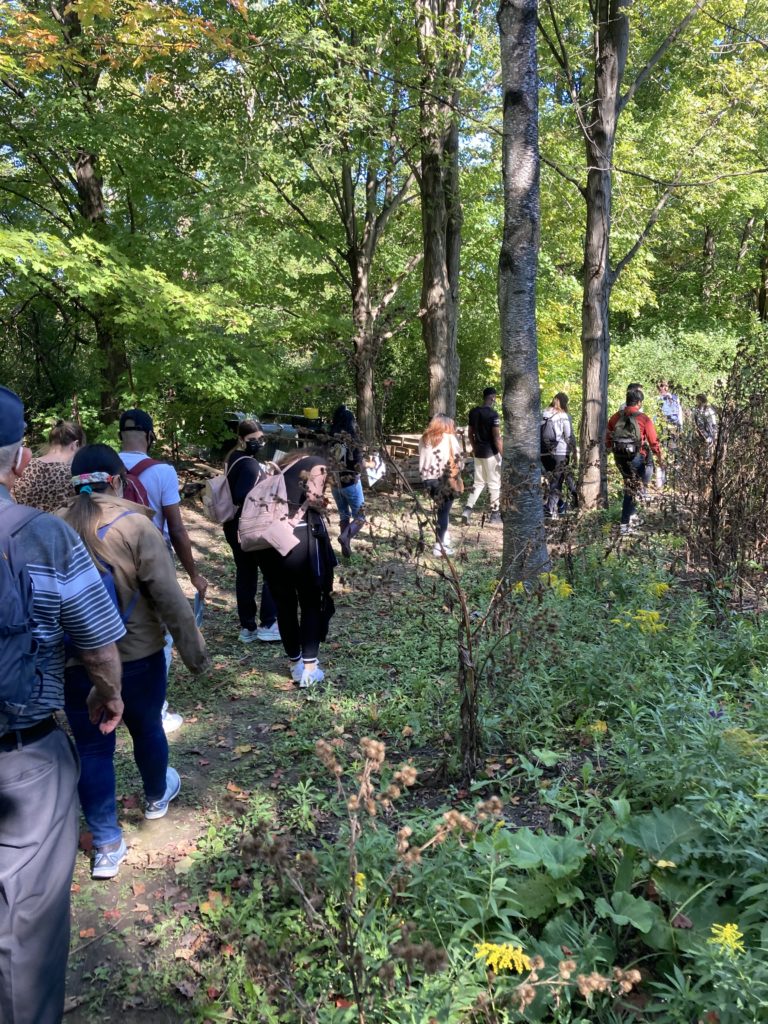
Teachings set in nature, among the maple trees of Black Creek Community Farm, offered students at York University a new perspective on health.
A unique experiential learning opportunity for York students in the Faculty of Health's School of Health Policy and Management (SHPM) offered first-hand teachings about what determinants shape health and how the land relates to health.
The land-based learning for two SHPM classes – HLST1011 Health on the Front Lines and HLST3012 Social Determinants of Indigenous Peoples' Health, taught by assistant professors Jessica Vorstermans and Sean Hillier – was delivered in partnership with Sweet Grass Roots Collective at the Black Creek Community Farm (Sweet Grass Roots Collective stewards land at the farm).
About 30 students from two classes met in person at the farm, where they received teachings from Jennifer LaFontaine of Sweet Grass Roots Collective, an Indigenous collective that does land- and place-based education, earthwork, arts and storytelling, and stewards a Three-Sisters Medicine garden at the farm. The teachings took place among the maple trees, and students were given the opportunity to taste sweetwater (which is used in ceremony), braid sweetgrass and bundle sage.

Students from classes in the Faculty of Health’s School of Health Policy and Management tied bundles of sage during a land-based learning activity 
Students walking through the maple grove at Black Creek Community Farm, where they participated in land-based learning activities
“Having learners on the land, and able to connect with the land, takes the theoretical and philosophical discussions from the classroom of knowledge and how knowledge systems are validated and challenges long-held Western notions,” says Hillier. “By taking part in on-the-land learning, learners come to a deeper meaning of Indigenous Peoples and traditional knowledge.”
Land-based learning presents a different opportunity for students, explains Vorstermans, because it asks participants to be present in a different way – being present to the land, to the plants, to the trees, to the wind, to the sun. During this particular experience, LaFontaine asked the group to think about Indigenous Peoples’ access to land for ceremony, as the group stood below maple trees and shared sweetwater.
“This kind of learning was different, while standing under the trees that provide the sweetwater,” says Vorstermans. “It also asks students to think about ways their learning has been colonized, asks them to think about ways learning can look different, ask different things and prompt different responses. It asks them to think about ways their own learning from land shapes their health, their wellness and what this relationship has looked like over time and space.”
She hopes students will come away from the experience with a deeper knowledge of how health care looks different based on social locations, and how colonization has shaped the system of care, knowledge and wellness.
“As a white woman scholar, I have to navigate this space with care and reciprocity. I am responding to calls from students to decolonize their learning and am guided by the Indigenous Framework for York University: A Guide to Action,” says Vorstermans. “I work to make space in my classroom, curriculum and syllabus to engage with Indigenous world views and ontologies, led by Indigenous scholars and teachers. This is my responsibility, as I have been given the task of educating current and future health professionals; it would be irresponsible not to.”
Those who could not come to the in-person learning engaged through a video that premiered on the Faculty of Health's YouTube channel.
